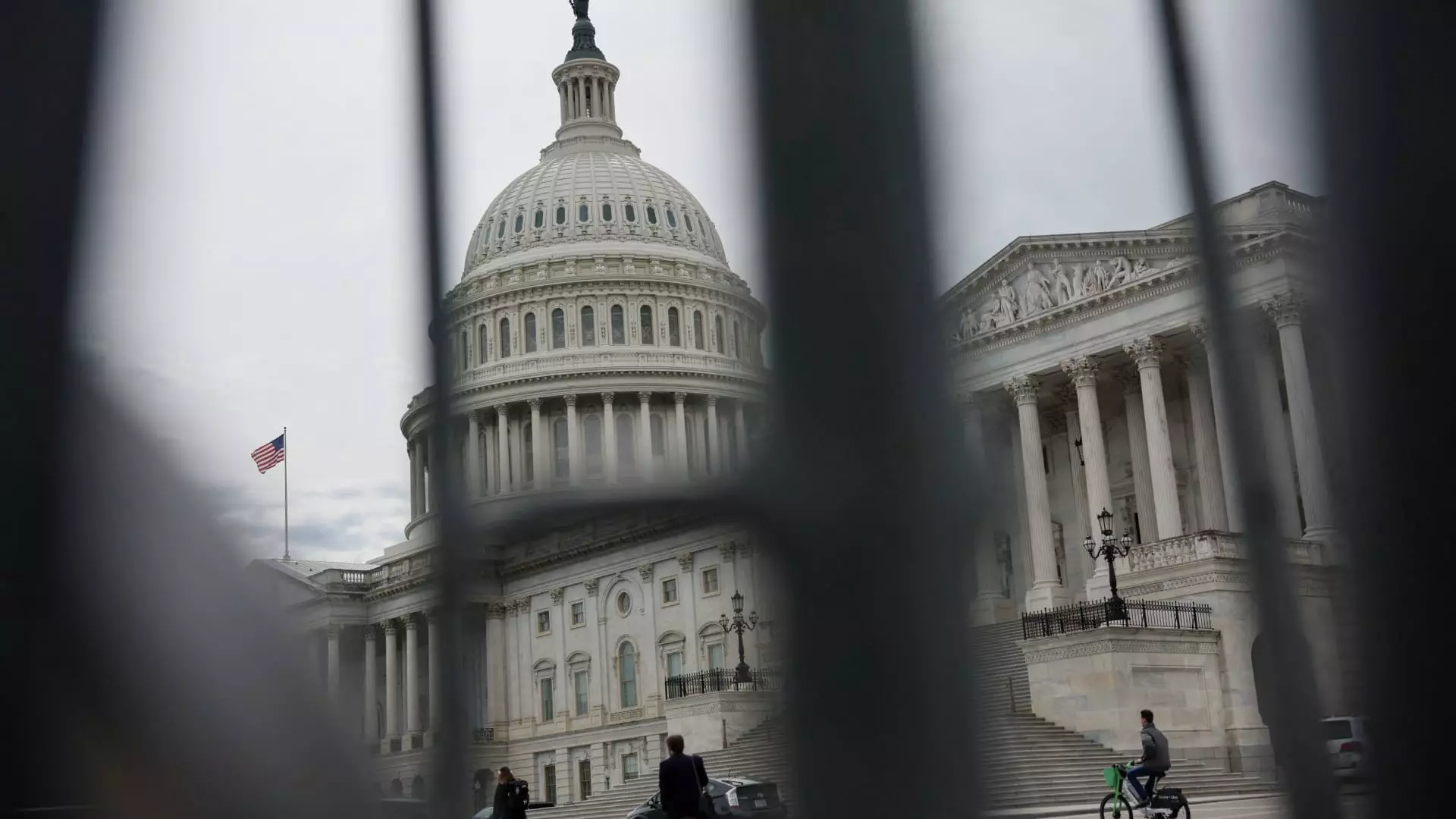The recent approval of a Republican budget blueprint by the U.S. Senate has set off alarm bells, not just among Democrats but also among many moderate voices who understand the implications of fiscal irresponsibility. The budget plan, which seeks to extend President Donald Trump’s 2017 tax cuts while proposing steep cuts in government expenditure, reveals a willingness to gamble with America’s economic stability, prioritizing short-term gains for the wealthy over long-term solutions for the nation’s financial health.
Early Saturday, in a hurried legislative process reminiscent of politically charged late-night sessions, Republicans voted to enable a maneuver that will allow them to bypass the Senate’s filibuster rules in order to push through these tax cuts later in the year. This tactic raises questions about transparency and accountability in governance. Non-partisan analysts have voiced concerns that the proposed measures could add nearly $5.7 trillion to the national debt over the next decade, while Republicans maintain that the actual cost would be only $1.5 trillion by excluding previously enacted tax policies scheduled to expire. This statistical sleight of hand should not only provoke skepticism but also challenge our collective integrity regarding fiscal responsibility.
The Perils of Tax Cuts for the Wealthy
This plan speaks volumes about the priorities of the Republican Party: a desire to extend tax breaks benefiting the ultra-wealthy at the expense of essential services for everyday Americans. It conflates the notion of fiscal conservatism with policies that threaten to derail crucial programs like Medicaid, which has been a lifeline for low-income families. Senate Democratic Leader Chuck Schumer aptly called this Republican initiative “poison,” highlighting that, as voters awaken to the reality of tax cuts designed for the affluent, they will rightfully question the moral compass of their elected officials.
One cannot help but wonder how extending tax cuts—especially those favoring corporations—can be justified when analyses show that such measures inevitably add burdens to the working class and impoverished communities. Senators like Lindsey Graham emphasize that allowing these tax cuts to expire would lead to significant strain on average households, yet the timing of this discourse coincides distressingly with a broader economic landscape marked by volatility in the stock market and rising fears of recession. Graham’s concerns, although perhaps sincere, seem conveniently selective when juxtaposed with the fiscal irresponsibility he now endorses.
The Illusion of Budget Cuts
As Republicans navigate this contentious terrain, they frame their agenda as one of cost-cutting and fiscal discipline, aiming to offset an inevitable rise in federal debt by slicing programs that support the vulnerable. For instance, a proposed cut of $880 billion to Medicaid raises severe ethical questions about the responsibility of government towards its constituents. Senator Bernie Sanders aptly argues that such cuts would exacerbate existing crises, depriving countless children of necessary healthcare services.
Moreover, while the Senate debated the budget, substantive amendments proposing protections for Social Security and veterans’ benefits were routinely blocked by Republican leadership. This approach reveals a disturbing trend in political strategy that prioritizes party allegiance over the welfare of the nation. It is a betrayal of the values this country prides itself on: support for our fellow citizens, safeguarding the rights of the most vulnerable, and endorsing a fair and equitable approach to public expenditure.
The Shadow of Economic Recklessness
With the House set to take up this complex proposal, there remains a critical need for a measured and comprehensive evaluation of its ramifications. The risks associated with these budgetary decisions extend beyond immediate fiscal concerns; they delve into the fabric of American society. A budget that seeks to bolster military spending and ramp up border control, all while tightening the safety net for struggling families, sends a stark message about the kind of country we aim to be.
The chants in support of deficit reduction ring hollow when immediately followed by applause for an expansion of economic inequality through tax discounts that primarily enrich those who already possess wealth. As a society, we must demand greater accountability from our leaders, advocating for budgets that genuinely reflect our collective values rather than partisan ambitions cloaked in promises of fiscal conservatism.
As we confront the implications of the Republican budget plan, the onus is on us—citizens, advocates, and moderates alike—to challenge the narrative spun by those in power and to strive for a more equitable socio-economic landscape. Only through engaged and informed activism can we counteract the harmful trajectory set by today’s policies.


Leave a Reply